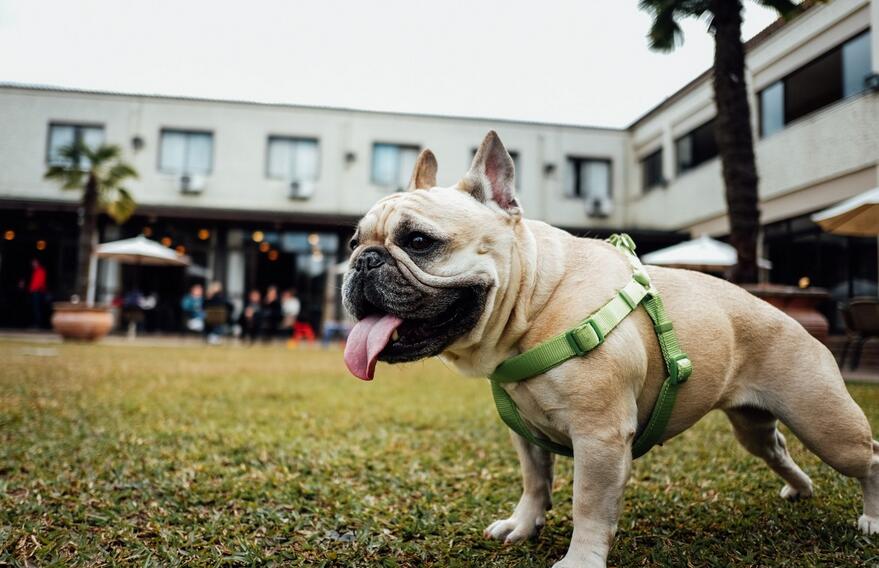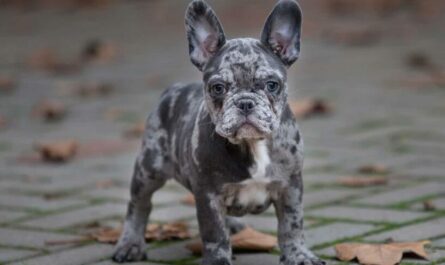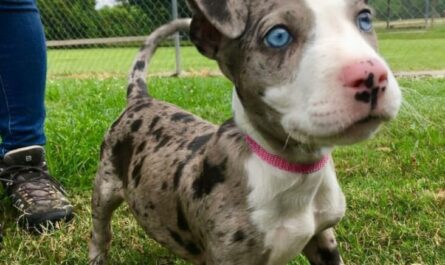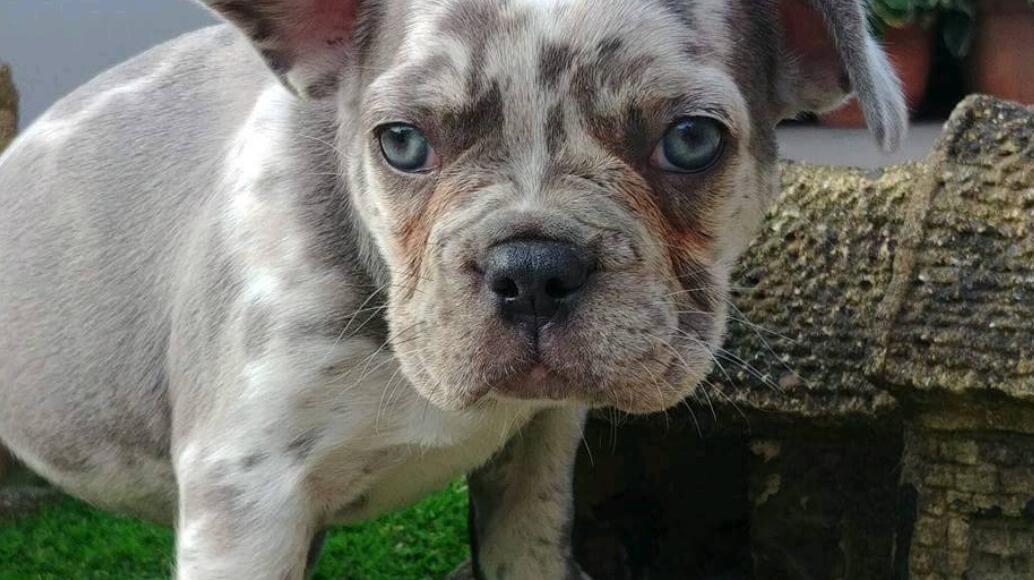French Bulldogs, with their distinct bat ears and compact build, have become a popular breed among dog lovers worldwide. A critical aspect of their appeal is understanding their lifespan, which is a primary concern for current and prospective owners. Research on canine longevity indicates that the average French Bulldog lives for about 10 to 12 years, though various factors can influence this expectancy.
While some French Bulldogs may reach the higher end of their lifespan, it’s important to recognize that they can be prone to health issues that might impact their quality of life and longevity. Studies show that in the UK, French Bulldogs live only 4.5 years on average, which contrasts with the longer lifespan of other breeds like Jack Russells, which average 12.7 years.
Nonetheless, with proper care, including a suitable diet, regular exercise, and routine veterinary check-ups, the lifespan of a French Bulldog can potentially be extended.
Breed History and Origin
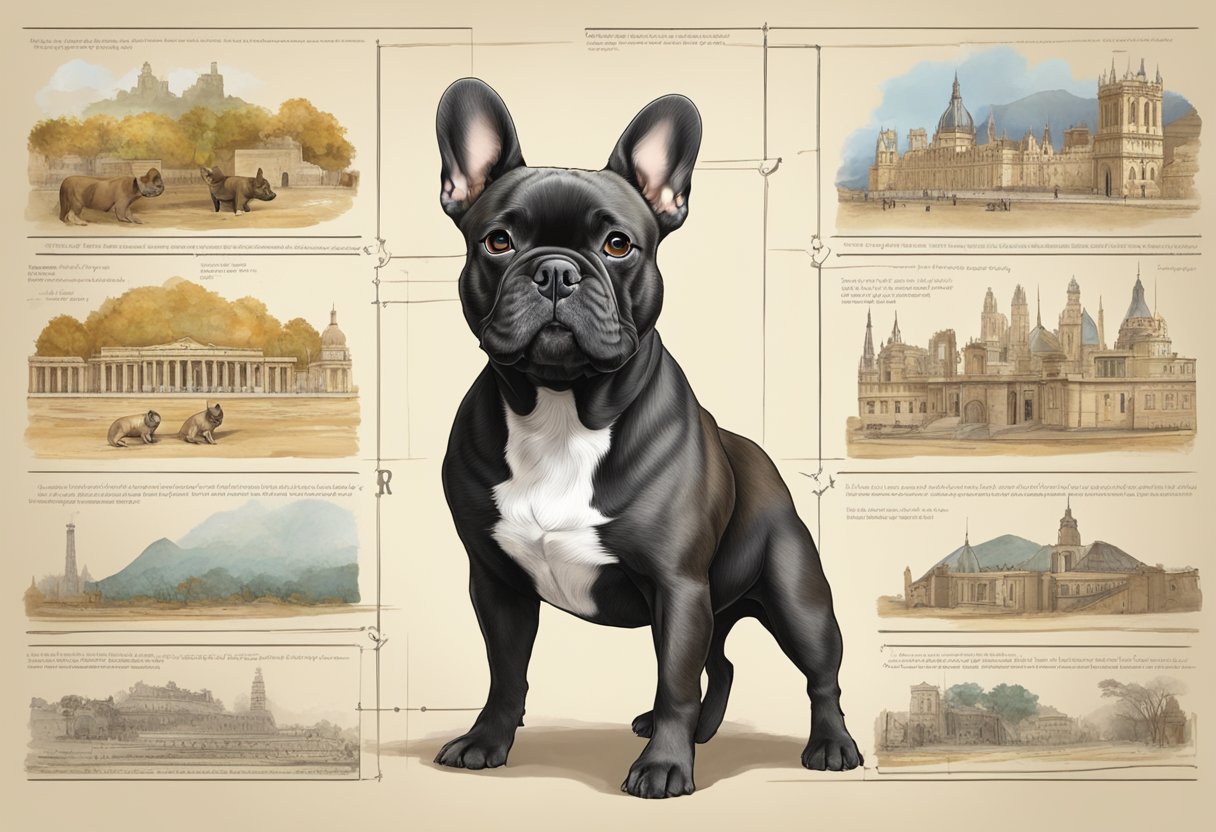
The French Bulldog traces its lineage back to the United Kingdom, where lace workers favored the smaller bulldog breeds. During the Industrial Revolution, as lace workers relocated to France, specifically Paris, these miniature bulldogs became popular in the country, leading to their association with French culture.
Toy Bulldogs from England were bred with local Parisian ratters, laying the foundation for this distinct breed. By the late 1800s, the breed had become a symbol of the Parisian way of life and its popularity surged among artists, actors, and the bourgeoisie.
The American Kennel Club (AKC) recognized the French Bulldog in 1898, noteworthy for their bat ears—a trait that serves as one of their most recognizable characteristics. Known traditionally as a companion dog, the breed has retained much of its sociable and affectionate nature.
This breed’s history is marked by a transition from England’s companions and small ratters to valued members of Parisian society, and eventually to their esteemed position within the AKC and dog lovers’ homes worldwide.
The French Bulldog’s adaptability and affectionate temperament have been key factors in its continued breeding and popularity. Despite their history of being bred for companionship, they are known for their robust, muscular body, characteristic of their bulldog lineage.
Physical Characteristics
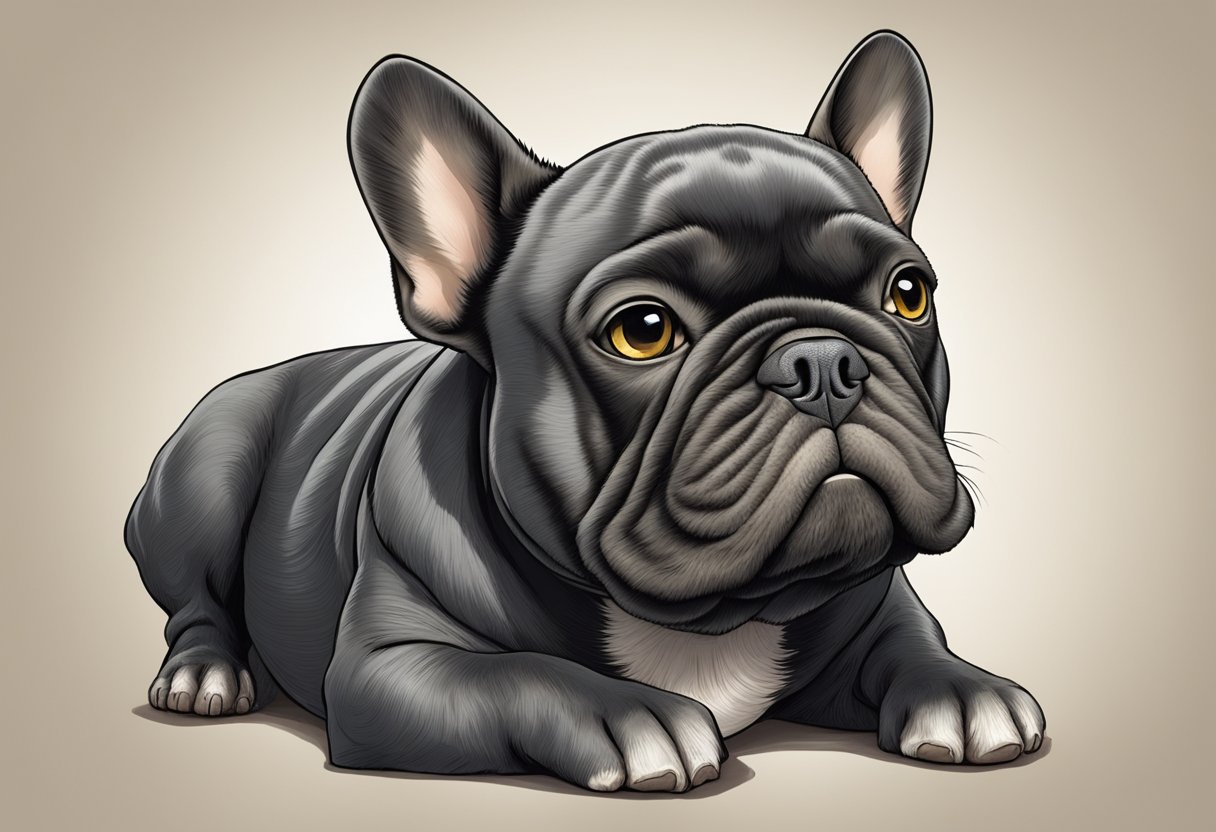
French Bulldogs, affectionately known as ‘Frenchies’, are compact and muscular dogs with a smooth coat, expressive eyes, and flat-faced appearances. The section below details these key physical traits, dividing them into their size and appearance, coat and color, and distinctive features.
Size and Appearance
French Bulldogs are small to medium in size, typically standing 11 to 13 inches tall at the shoulder and weighing under 28 pounds. Their build is stocky and muscular, with heavy bones for such a diminutive breed. This breed displays a proportionate body, exhibiting balance and symmetry.
Coat and Colors
The coat of a French Bulldog is short, smooth, and fine. As for coloration, Frenchies come in a variety of hues, including brindle, a pattern of dark stripes on a lighter background; fawn, which ranges from light tan to warm brown; and pied, notably the black and white pied, where the base color is white or eggshell covered by dark color patches.
Other colors they exhibit are black and a less common blue, a diluted black that appears to be a slate grey. The coat requires minimal grooming due to its texture and length.
Distinctive Features
A trademark feature of French Bulldogs is their large, erect ‘bat ears’, standing out prominently on top of their wide, square heads. The ears, alongside the breed’s flat face, are distinctive and lend a level of alertness to the dog’s expression. The wrinkles above their short nose and rounded forehead further characterize the breed, often making them appear more expressive.
Temperament and Behavior
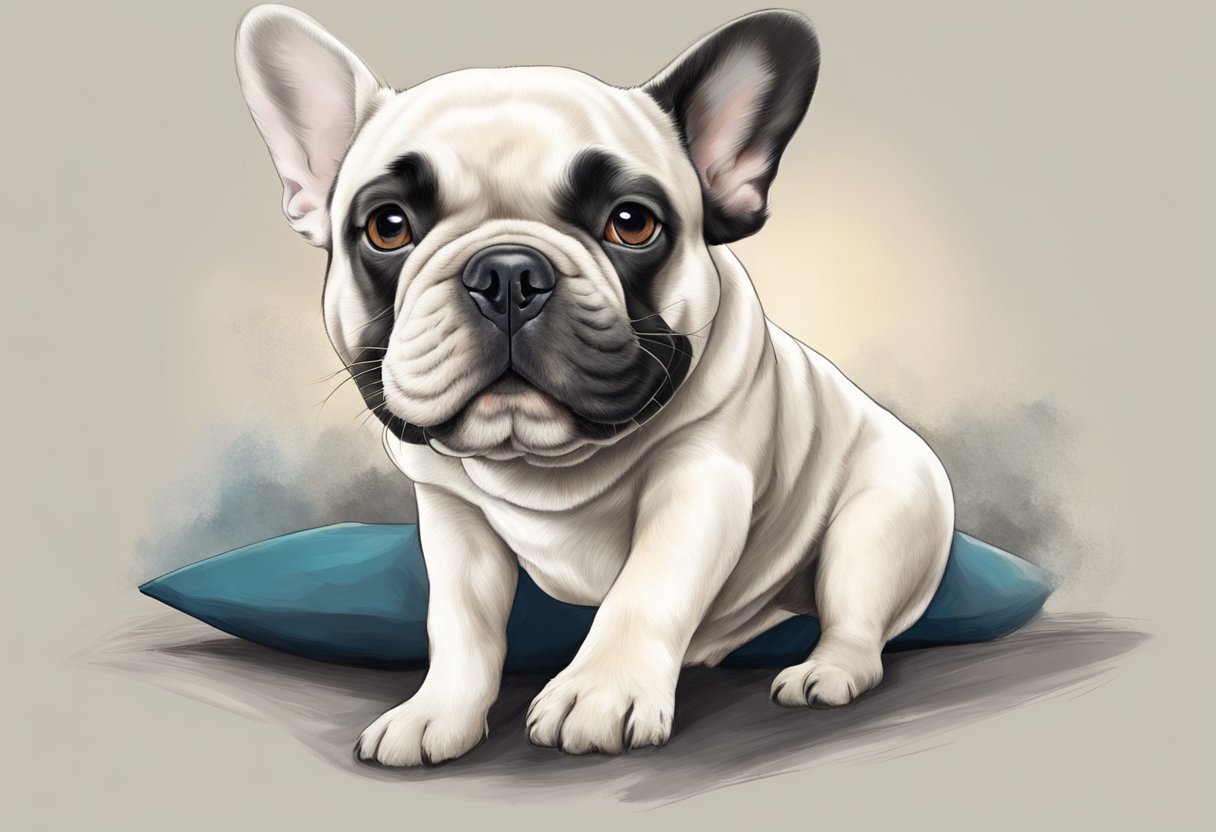
The French Bulldog is widely recognized for its companionable nature, serving as an affectionate and playful friend to its owners. Their temperament is predominantly friendly, which often translates into a warm and welcoming attitude towards children and other pets, including cats. These qualities make the French Bulldog an ideal companion dog.
Behavioral Traits:
- Amicable: They generally display a cheerful disposition.
- Playful: French Bulldogs enjoy light play, befitting their moderate energy levels.
- Loyal: Their loyalty to their owners is a hallmark of their character.
- Alert: This breed often exhibits a curious and alert demeanor, though not typically aggressive.
Due to their social nature, French Bulldogs thrive on human interaction and can become anxious if left alone for extended periods. As companion animals, they seek a close bond with their owners and prefer to be an integral part of the family’s daily activities.
Their behavior strikes a balance between lively spirits and the capacity for calm relaxation, making them adaptable to various environments. While they can suit apartment living due to their size, it is vital not to neglect their need for regular, albeit brief, exercise to maintain their mental and physical health.
It is important to note that the breed’s temperament can reflect the level of training and socialization they receive. Well-socialized French Bulldogs generally maintain harmonious relationships with both humans and other animals.
Lifespan and Longevity
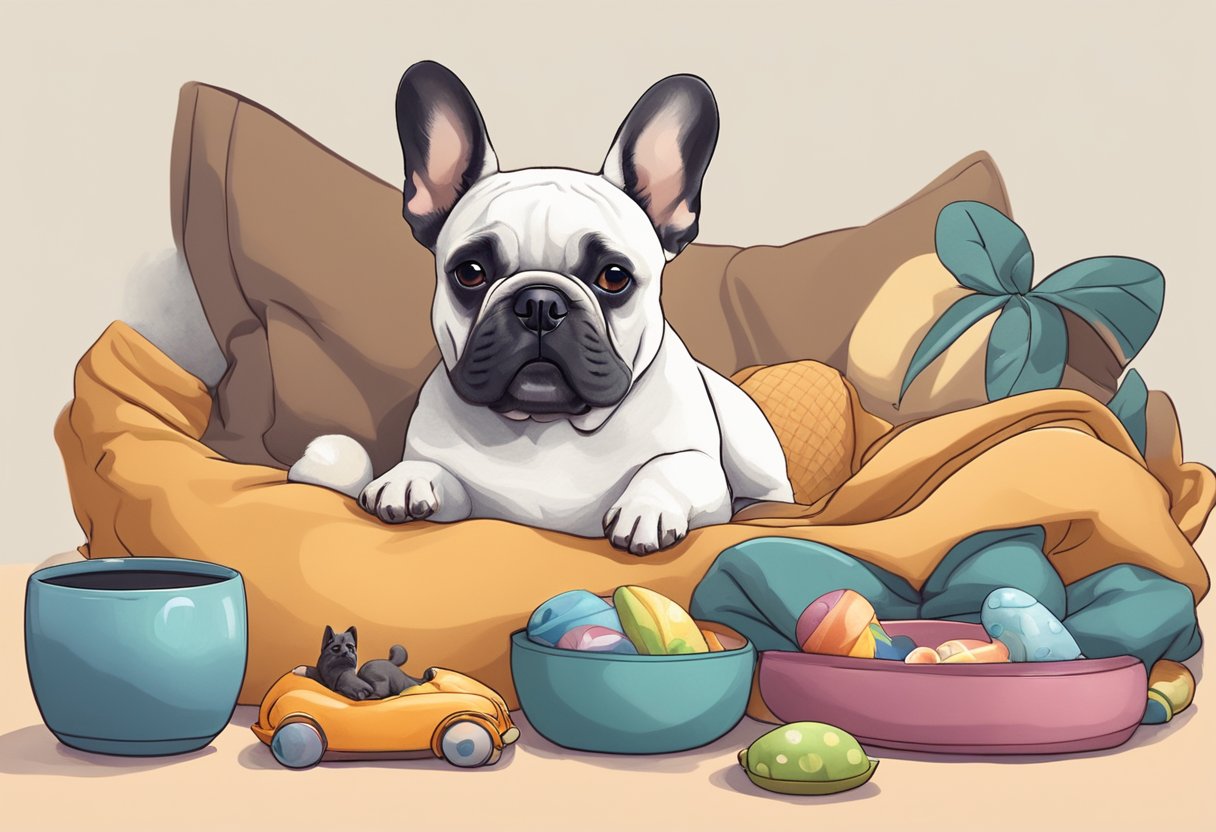
French Bulldogs, a cherished companion breed, display a lifespan that’s influenced by genetic and environmental factors. Let’s explore the expected longevity of these dogs and what influences their life expectancy.
Average Lifespan
French Bulldogs generally enjoy a lifespan ranging from 9 to 13 years. Research indicates they live, on average, between 10 to 12 years. A study leveraging VetCompass data, however, suggests that some may have an average life expectancy as low as 4.5 years, perhaps not representing the entire breed’s potential longevity.
Life Expectancy Factors
Several factors contribute to a French Bulldog’s life expectancy:
- Genetics: Inherited traits can significantly impact their overall health and longevity.
- Diet & Exercise: A balanced diet and regular, moderate exercise are crucial for their well-being.
- Health Challenges: They are prone to conditions stemming from their brachycephalic facial structure.
- Gender: Female French Bulldogs might live slightly longer than their male counterparts.
Creating a conducive environment that addresses air quality, temperature, and exposure to potential toxins is paramount for potentially extending their lifespan. Special attention towards older, senior dogs is needed to ensure a good quality of life in their twilight years.
Common Health Issues
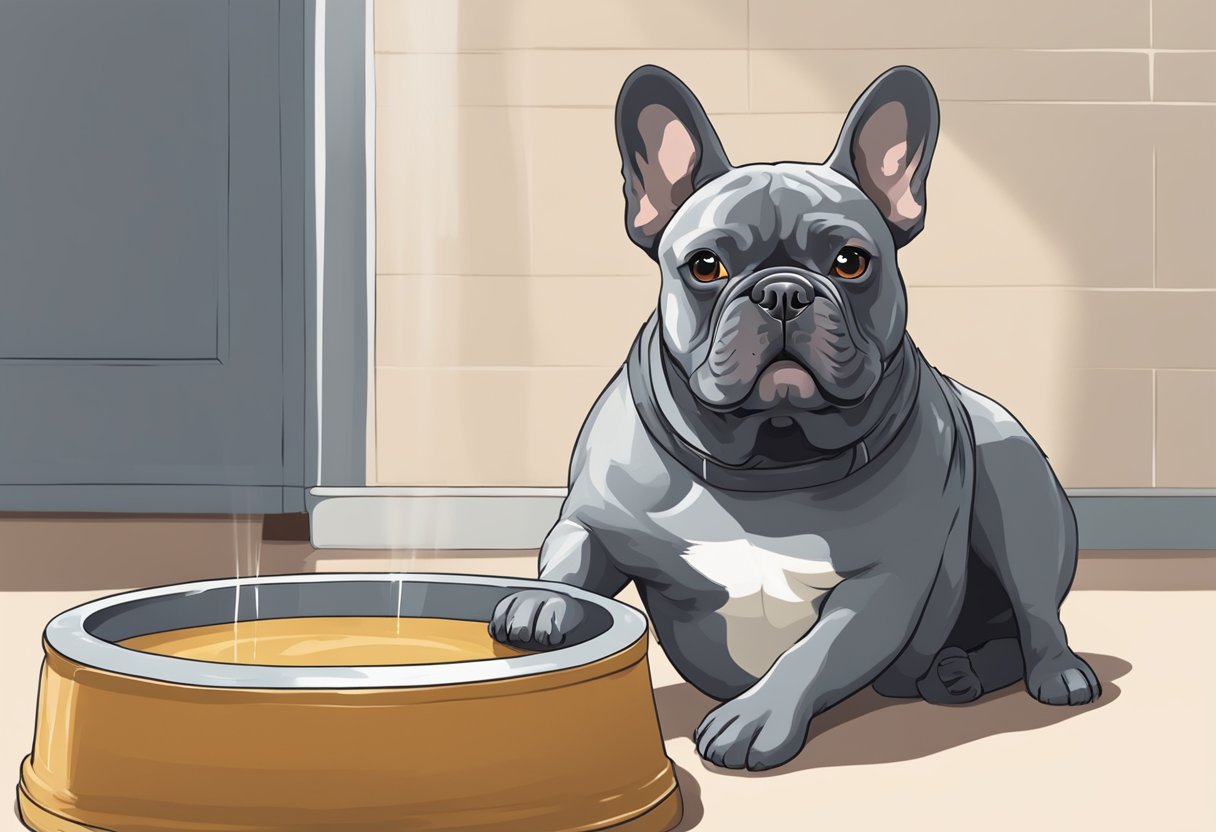
French Bulldogs are predisposed to certain health issues due to their genetics and physical structure. These range from hereditary conditions to respiratory and dermatological problems, affecting their overall health and well-being.
Hereditary Conditions
French Bulldogs may inherit several conditions, such as hip dysplasia, a malformation of the hip joint that can lead to pain and mobility issues. Additionally, they can be prone to hereditary cataracts, which impair vision, and patellar luxation, where the kneecap dislocates from its normal position.
Respiratory Problems
French Bulldogs often suffer from breathing problems due to their short noses; a condition known as Brachycephalic Obstructive Airway Syndrome (BOAS) is particularly common in this breed. This can lead to difficulty breathing, especially in hot weather or during exercise.
Dermatological Issues
Their characteristic wrinkles can lead to skin fold dermatitis if not cleaned properly. Skin infections may occur, requiring diligent care to maintain skin health. In addition, ear infections are common due to the shape of their ears trapping moisture, and conjunctivitis, an eye condition, can be exacerbated by their facial structure.
Other Health Concerns
French Bulldogs can also experience various ocular problems, including corneal ulcers, which are painful and can affect vision. Their unique physical appearance, while endearing, also contributes to a myriad of these health challenges that require vigilant care from their owners.
Care and Maintenance
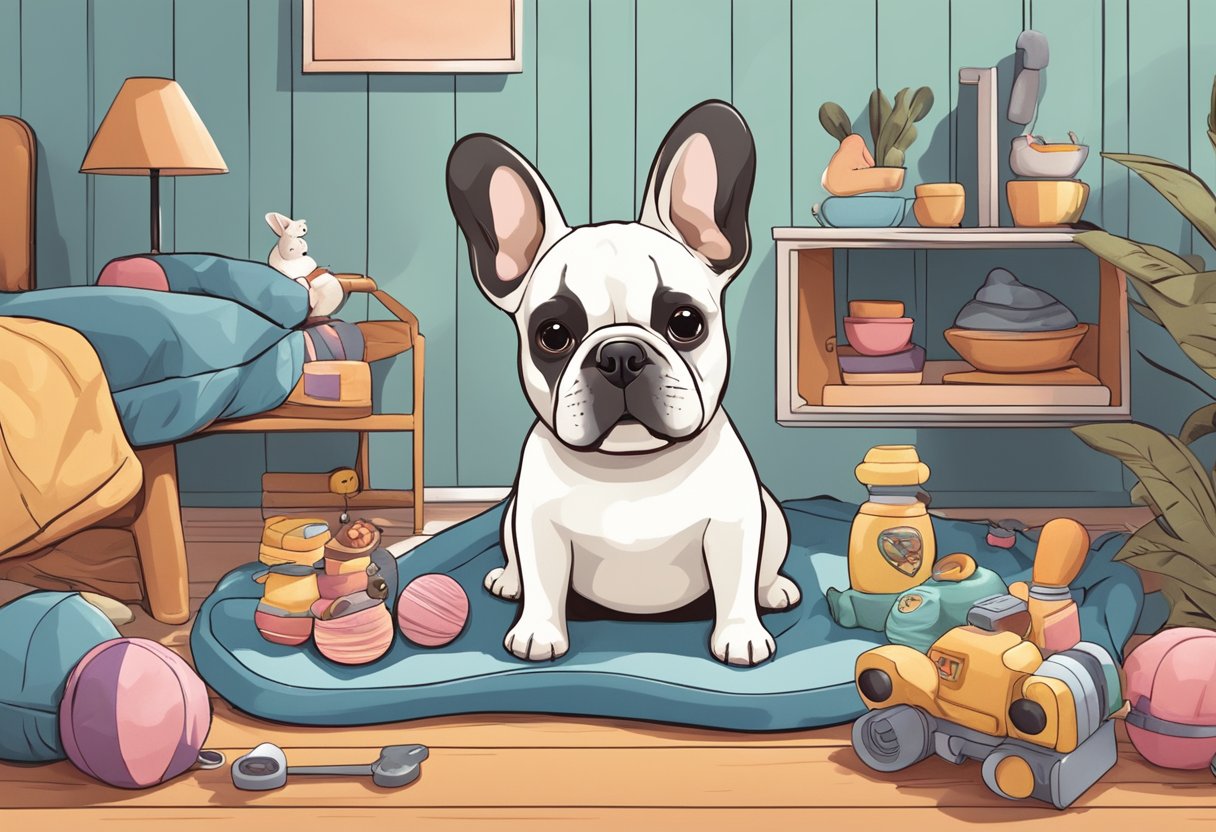
The longevity of French Bulldogs heavily relies on effective care and maintenance. This breed benefits from a regimented health routine encompassing a balanced diet, regular exercise, diligent grooming, and consistent veterinary check-ups.
Diet and Nutrition
A balanced diet is crucial for maintaining a French Bulldog’s health. They require high-quality dog food that meets their nutritional needs. Here are key points for their diet:
- Protein Content: Should be high to support muscle mass.
- Fats: Essential but should be given in moderation to prevent obesity.
Refer to The Complete Guide to French Bulldog Care and Maintenance – Top Frenchie for specifics on the Frenchie diet.
Exercise Requirements
Despite their small stature, French Bulldogs need regular exercise to maintain a healthy weight and to mitigate potential respiratory issues associated with their brachycephalic facial structure. Aim for:
- At least 30 minutes of walking per day.
- Playtime that is engaging but not overly strenuous.
Grooming and Hygiene
Grooming is a non-negotiable aspect of French Bulldog care to prevent skin infections and maintain overall hygiene. Critical grooming practices include:
- Wrinkle Cleaning: Keep wrinkles dry and clean daily.
- Ear Care: Regular ear cleaning to prevent infections.
To learn how to care for the breed’s unique skin and coat, visit PetMD’s French Bulldog Dog Breed Health and Care guide.
Regular Veterinary Check-ups
Routine veterinary care is imperative for the lifelong health of French Bulldogs. Ensure that:
- Vaccinations are up-to-date.
- Health screenings occur during vet visits.
Regular check-ups can catch health issues before they escalate. For insight into the importance of preventive care for Frenchies, consult the detailed information at Complete Care Guide for French Bulldogs » Info, Tips, & More – Dog Learn.
Pros and Cons of Ownership
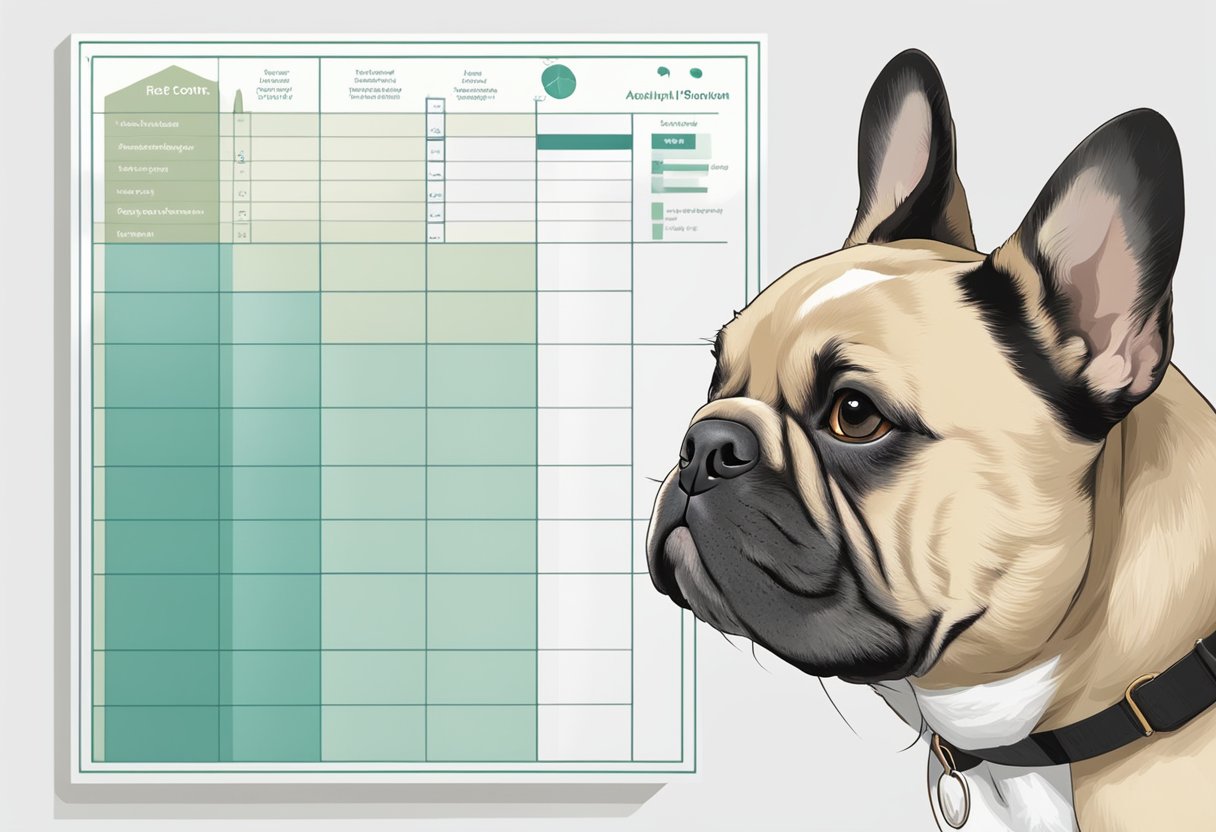
Pros:
- Companionship: French Bulldogs are excellent companion dogs, known for their loyalty and affectionate nature, making them a charming addition to any household.
- Adaptability: They are well-suited for apartment living due to their small size and the relatively low amount of exercise they require.
- Sociability: This breed is generally friendly and can coexist well with other pets and family members when properly socialized.
Cons:
- Health Issues: French Bulldogs have a predisposition to certain health problems like brachycephalic syndrome and hip dysplasia, potentially leading to expensive veterinary visits.
- Maintenance: Their short coat may be deceiving; French Bulldogs can shed substantially and have grooming needs that shouldn’t be underestimated.
- Behavior: Leash pulling and sometimes stubborn nature can require consistent training and attention.
Despite being a popular breed, potential owners should consider both the positive aspects and the challenges that come with a French Bulldog. Their affectionate demeanor and low exercise needs are countered by health considerations and maintenance. While they make loyal and loving companions, the care they need can be considerable.
Buying and Adoption Guidance
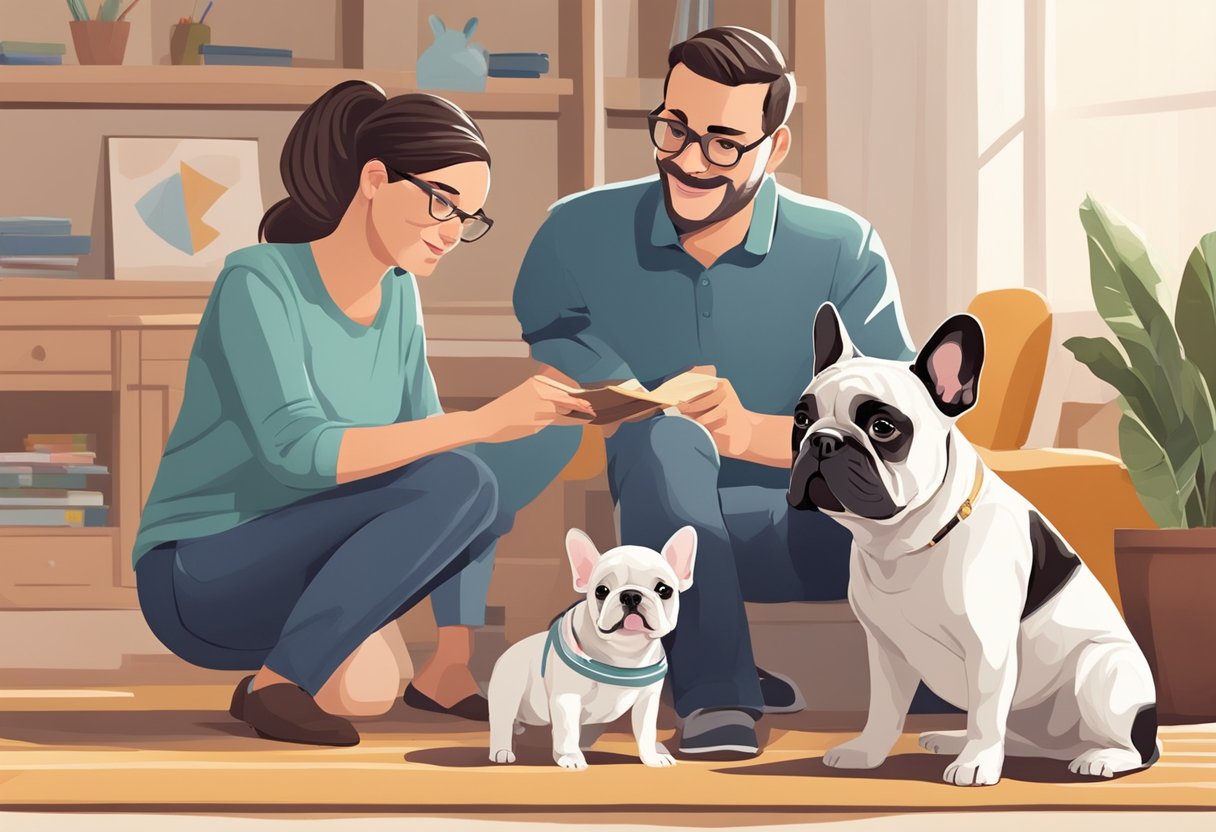
When considering bringing a French Bulldog into one’s life, it is crucial to understand the significance of choosing the right source. One has the option to either buy from a reputable breeder or opt for adoption. Both paths require careful thought to ensure the well-being of the dog and a responsible approach to pet ownership.
Choosing a Reputable Breeder
Reputable breeders prioritize the health and temperament of their French Bulldogs. Prospective owners should ensure breeders offer:
- Health clearances: Confirm that the breeder conducts health screenings and provides documentation.
- Kennel Club affiliations: Look for breeders associated with national kennel clubs, indicating adherence to specific standards.
- Openness and transparency: Breeders should be willing to answer questions, show where the dogs are raised, and discuss their breeding practices.
They should also be concerned with the long-term welfare of the puppies, often willing to provide lifetime support.
Adoption Options
Adoption is a noble and rewarding way to welcome a French Bulldog into one’s home. Key points to consider include:
- Rescue organizations: They should be reputable and focused on caring for abandoned or surrendered French Bulldogs.
- Shelters: This can be an unexpected place to find French Bulldogs needing homes.
- Background: Adopted dogs may come with past behavioral or health information that can assist in caring for them properly.
Adoption not only offers a French Bulldog a second chance at life but also allows one to potentially bypass some of the health issues that can come from less scrupulous breeders.
The French Bulldog in Popular Culture
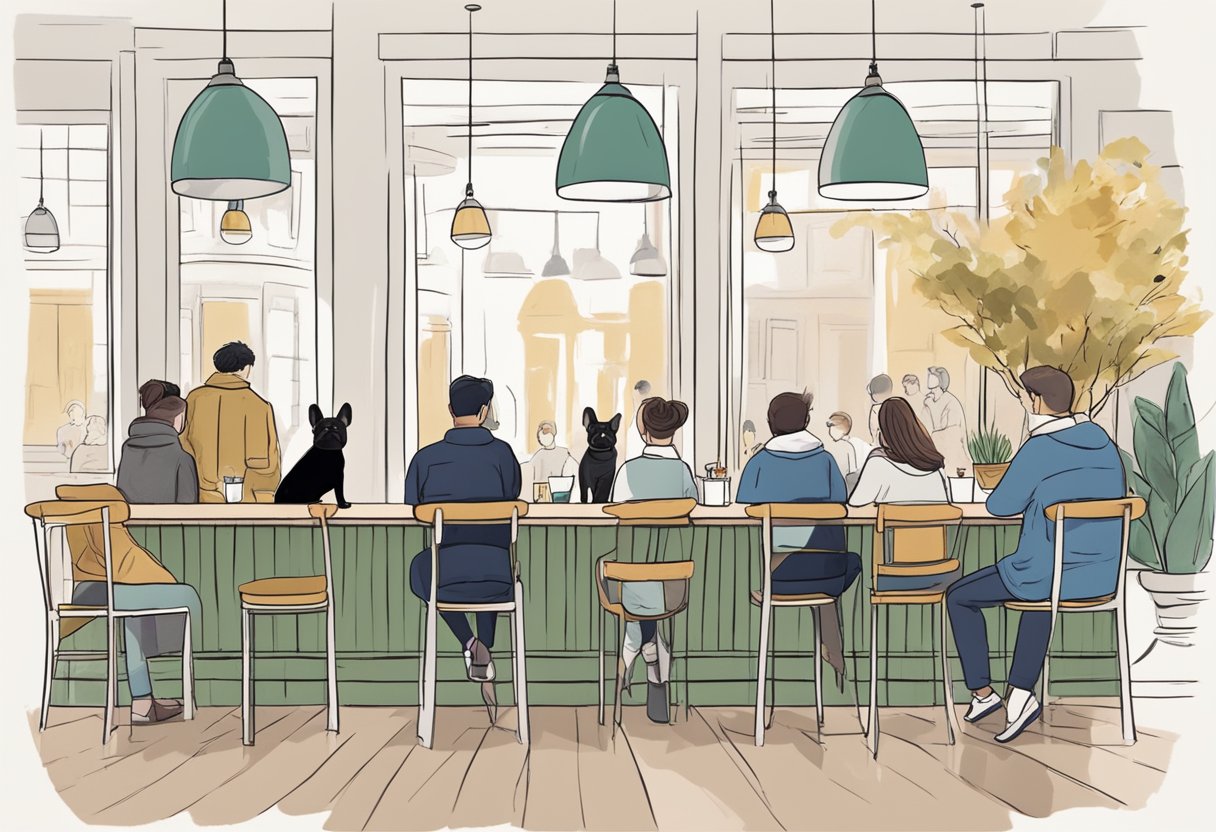
The French Bulldog, often seen as a bold fashion statement, has woven itself into the fabric of popular culture. They hold the title of a popular breed among celebrities and everyday dog enthusiasts alike. Thanks to their compact size and charismatic nature, these toy dogs frequently appear alongside public figures and on social media platforms, reinforcing their popularity.
Frenchies have a distinctive look that often makes them a top choice for advertisers, representing brands related to style and luxury. They grace the pages of high-end fashion magazines and serve as inspiration for a myriad of modern design products. With their popularity surging, French Bulldogs have become synonymous with urban living and are regular features in city-centric TV shows and movies.
Their adaptability makes them ideal for busy city dwellers; they are small but sturdy, and their even temperament allows for tight living spaces. As such, French Bulldogs continue to be associated with a trendy, metropolitan lifestyle and popularity seems set to remain high for this lovable toy dog.

